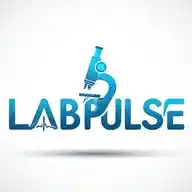
نبض المختبر Lab Pulse
February 9, 2025 at 04:28 AM
*Lab Pulse: The Importance of Fasting Before Medical Tests*
Fasting before certain medical tests is essential to ensure accurate and reliable results. Eating or drinking can alter the levels of various substances in the blood, leading to incorrect readings that may affect diagnosis and treatment.
*Why is fasting necessary before testing?*
✅ *Prevents elevated blood sugar levels:* Eating raises glucose levels, which can result in inaccurate fasting blood sugar (FBS) readings.
✅ *Regulates blood lipid levels:* Fatty meals can affect lipid profile test results, especially triglycerides (TG).
✅ *Ensures accuracy in liver and kidney function tests:* Food intake can alter levels of certain enzymes and substances like urea (UREA) and creatinine (Creatinine).
✅ *Minimizes the impact of nutrient absorption:* Some tests, such as iron studies, are influenced by dietary iron absorption.
*Required Fasting Duration for Each Test*
• Fasting Blood Sugar (FBS): 8-12 hours
• Lipid Profile: 12 hours
• Iron Studies: 8-12 hours
• Liver and Kidney Function Tests: 8-12 hours (in some cases)
🚫 *During fasting, only water is allowed. It is best to avoid coffee, tea, and gum, as they may affect test results.*
*Which tests do not require fasting?*
Certain tests, such as HbA1c (Glycated Hemoglobin), hormone tests, and complete blood count (CBC), do not require fasting.
🩺 *Important Tip*: If you are unsure whether fasting is required, consult your doctor or the laboratory before your test to ensure accurate results.
*Prepared by*: Said Mohammed Al-Jaafari
*Lab Pulse Channel*
https://whatsapp.com/channel/0029Vaydi9IBKfi318dkau32
👍
❤️
5